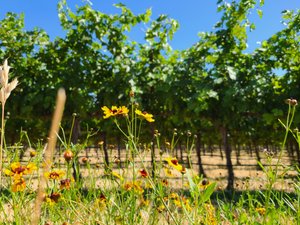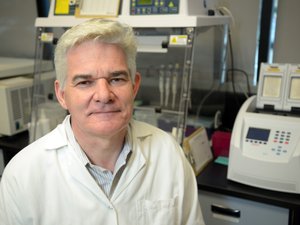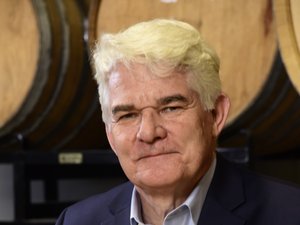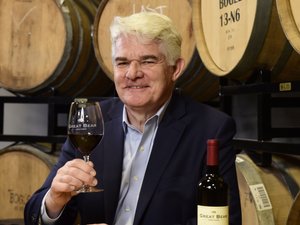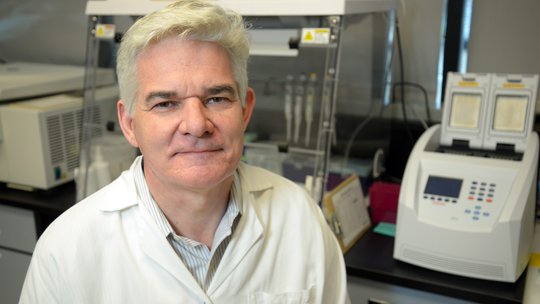
Agricultural technology company BioConsortia Inc. has developed a shelf-stable microbe that helps crops absorb free nitrogen from the air and soil, which could make farming more profitable.
The Davis-based company has been developing the seed technology in its labs in Davis and New Zealand for a decade, and it anticipates sales starting at the end of this year, BioConsortia CEO Marcus Meadows-Smith told the Business Journal.
“It’s very exciting. These products are true game changers,” Meadows-Smith said. “I think we are going to get very rapid growth.”
The sales anticipated to begin at the end of the year would be the first product revenue into the research company.
BioConsortia is working with two international seed companies to get its technology to market, though Meadows-Smith declined to name them. He said they are household names with growers.
BioConsortia now has two years of successful field trials behind it, which show its technology works in multiple climates and in various geographies and weather conditions, he said.
Those field trials show that growers can cut the amount of nitrogen they use in fertilizer because the biological processes of the microbes allow crops to naturally absorb free nitrogen. If crops don’t absorb free nitrogen, farmers must apply it directly to maintain yields, and nitrogen is expensive to buy and problematic when it runs off into watersheds.
BioConsortia’s technology is applied directly to seeds, and then it helps the seeds colonize beneficial organisms when they are in soil.
The nature of BioConsortia’s microbes also allows them to be applied on a seed along with synthetic chemicals, fungicides and fertilizers.
“As you can imagine, that is a very hostile environment,” Meadows-Smith said.
It would be hostile for an actively living bacteria, but BioConsortia’s technology developed around bacteria spores that are in a dormant phase.
In field trials for potatoes, growers using treated seeds were able to displace 70 pounds of nitrogen application per acre, a reduction of 30%. He said the technology will be used in row crops like corn, and it has shown success in fruit and vegetable applications.
Nitrogen fertilizers are produced from natural gas. The cost of those fertilizers tracks the cost of natural gas, which can be expensive, and natural gas is a petroleum product producing carbon.
BioConsortia got to its bacteria technology by taking the road not usually taken, said Meadows-Smith, a longtime proponent of biological controls in agriculture to replace chemicals.
In the world of bacteria, there are Gram-negative and Gram-positive forms of microbes. Generally, Gram-negative bacteria have thick exterior cell walls, and they are good at fixing nitrogen, so most researchers for years sought out Gram-negative bacteria lines to develop new crop technologies.
The problem with Gram-negative microbes, Meadows-Smith said, is that they are actively alive, and so they need to be applied to seeds within a couple days or they die. They also don’t react well to the hostile environment of being applied along with fungicides, pesticides or the fertilizers potassium or phosphorus.
BioConsortia developed its technology around Gram-positive bacteria, which the company can induce into hibernation, which in the case of bacteria is a spore. The spore is dormant until the germinating seed triggers the spore awake with natural sugars.
Those spores are viable for two years or more. And, what’s more, the spores are dormant, so they can be applied along with what would otherwise be harsh chemicals.
BioConsortia last year raised $15 million to conduct hundreds of field trials using its biotechnology with third-party partners in North America, Asia, Latin America and Europe. Since its launch in 2014, BioConsortia has raised more than $55 million from venture capital firms Otter Capital LLC, based in Woodside, and Khosla Ventures, based in Menlo Park.
BioConsortia is also developing biostimulants to increase crop yields; and bionematicides and biofungicides to protect crops from pests and diseases. It also is working on biologically derived products for post-harvest pathogen control once food makes it to distribution and eventually to retail markets.
BioConsortia is a research and development company with 50 employee, mostly in Davis. It will either contract out manufacturing of its products or work with seed companies on a royalty or licensing formula.

